"New!" BC Social Studies 10 • piloting in 2016-17
See the New BC Curriculum page to see how Social Studies is changing in 2015-2018. Socials 10 becomes the last wholistic "Social Studies" course required by students. After that there are a number of electives such as History, Geography, and First Peoples' Issues, similar to the way Science 10 leads to Gr. 11/12 course in Physics, Chemistry, Biology, etc.
The new Social Studies 10 is still in draft form. Given the way things are going, it will look different depending on the teacher, school, and district. For some, SS10 will be like the old SS11 -- 20th Century Canadian history with parallel explorations of Politics, Government, Citizenship, and Human Geography. For others, the emphasis might be more on contemporary issues in Canadian and global society and politics.
I have put together a draft OUTLINE OF THE NEW SS10 for teachers to use as a reference. This is one is quite "safe" -- it looks quite a bit like the old SS11 but it certainly gives me a place in which to try new things, in particular to do more work using sources and case studies to develop "competencies" with students.
Some other teachers an I have put together resources for a HYBRID SS10/SS11 course that many in BC will do in Grade 10 for 2016-17. This is a bridge year and bridge course for SS10, capturing some of the most interesting and important topics from the old SS10 and SS11 (which disappear next year).
The new Social Studies 10 is still in draft form. Given the way things are going, it will look different depending on the teacher, school, and district. For some, SS10 will be like the old SS11 -- 20th Century Canadian history with parallel explorations of Politics, Government, Citizenship, and Human Geography. For others, the emphasis might be more on contemporary issues in Canadian and global society and politics.
I have put together a draft OUTLINE OF THE NEW SS10 for teachers to use as a reference. This is one is quite "safe" -- it looks quite a bit like the old SS11 but it certainly gives me a place in which to try new things, in particular to do more work using sources and case studies to develop "competencies" with students.
Some other teachers an I have put together resources for a HYBRID SS10/SS11 course that many in BC will do in Grade 10 for 2016-17. This is a bridge year and bridge course for SS10, capturing some of the most interesting and important topics from the old SS10 and SS11 (which disappear next year).
The "Old" BC Social Studies 10 (used from 2006-2016)
Why Canada? This course examines how our country evolved from a collection of cultures, colonies, and internal conflicts to become a nation.
 The Last Spike - CPR spans the country 1885
The Last Spike - CPR spans the country 1885
The story of how Canada came to be is linked by the history, geography, economy, and changes in society that occurred from 1815-1914. The focus questions below form the basis of the lessons, activities, and assessments -- the things that students do or achieve to show that they have addressed the focus questions (met the learning outcomes, demonstrated understanding). Skills such as map literacy, critical thinking, effective research, current events, communication, and active citizenship will relate to many of the learning outcomes.
See the PDF VERSION for SS10 Course Outline, Student Expectations, etc.
Check out the HERITAGE RESOURCES page for help with your major course project
All other course handouts are linked below.
See the PDF VERSION for SS10 Course Outline, Student Expectations, etc.
Check out the HERITAGE RESOURCES page for help with your major course project
All other course handouts are linked below.
Units and Focus Questions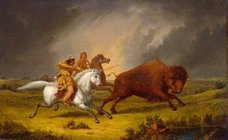
UNIT 1: CANADIAN GEOGRAPHY
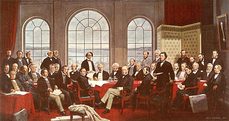
UNIT 2: BUILDING A NATION
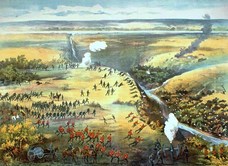
UNIT 3: CHALLENGE OF THE NORTHWEST
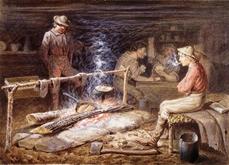
UNIT 4: ON THE PACIFIC
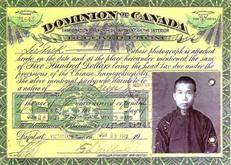
UNIT 5: EMERGING CANADA
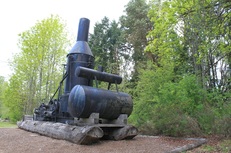
UNIT 6: ECONOMY AND RESOURCES
|
Student ExpectationsYour teacher does not have many rules... mostly it is expected that students will operate with a few principles in mind:
AssessmentAssessment happens all the time -- when our questions are answered, when we think about whether we understand, something, when you get feedback on something you have said or done, and when you get evaluated on things you've turned in.
The "summative" parts -- the assessments your teacher uses to prepare reports and assign marks -- are generated from the work you submit (e.g. smaller assignments like maps), the projects you complete (e.g. the Heritage Connections Project), and the tests you write (e.g. Unit Tests with critical thinking questions and access to your notes). You must actually do the work to get the marks, just as you have to actually be here if you want the benefit of the lessons. Your teacher will accept late work up to a point -- normally up to the end of the next unit or 3 weeks, whichever comes first. After that it is past due and you must make a new or different attempt to demonstrate your understanding of missed learning outcomes. Your teacher believes this reflects the principles listed above, especially mutual respect and self-reliance. It is very important that you reflect on how things are going for you as often as you can, and come talk to your teacher when you need help. Usually, there is some time set aside in each class for this purpose -- ask a question, share what you are working on, get a concept explained, or challenge an idea. Your teacher and often your classmates are here for that purpose -- to help your learn. We're not as direct or fast as a google search, but we know how to laugh, ponder, and provoke. Review
| ||||||
